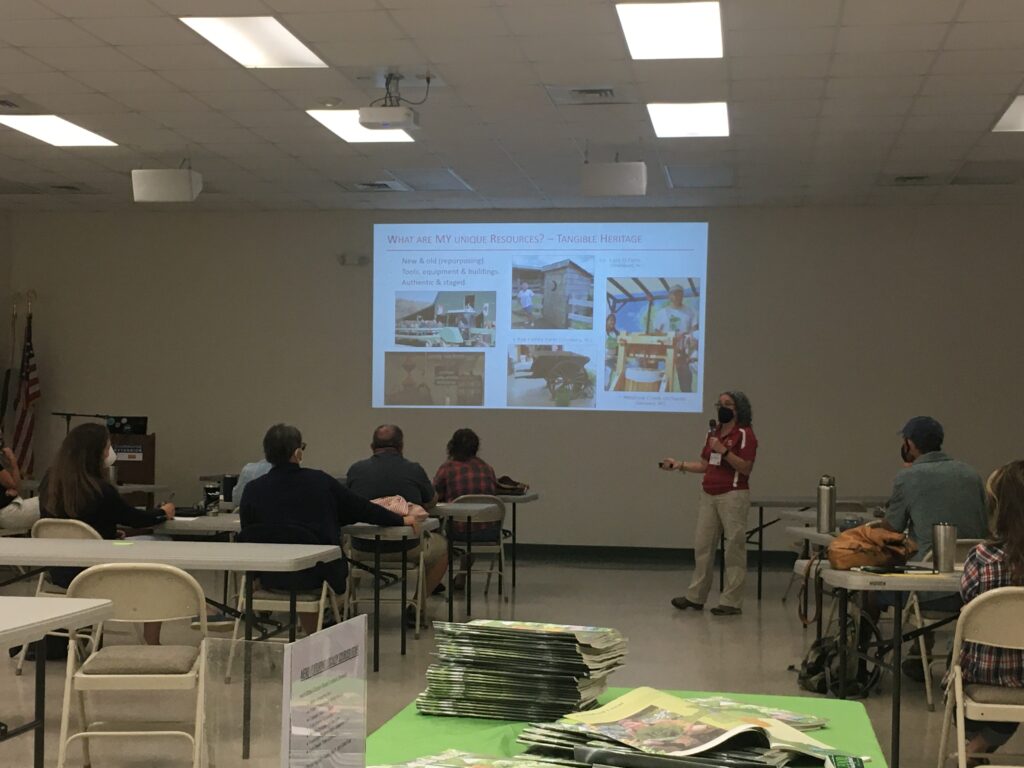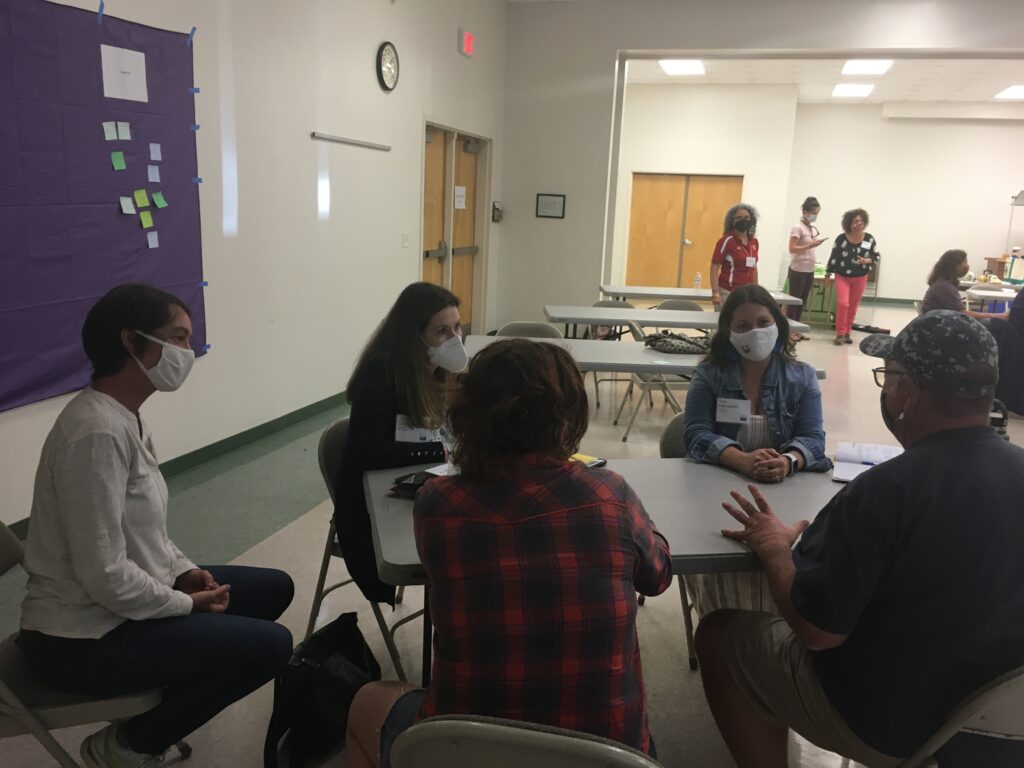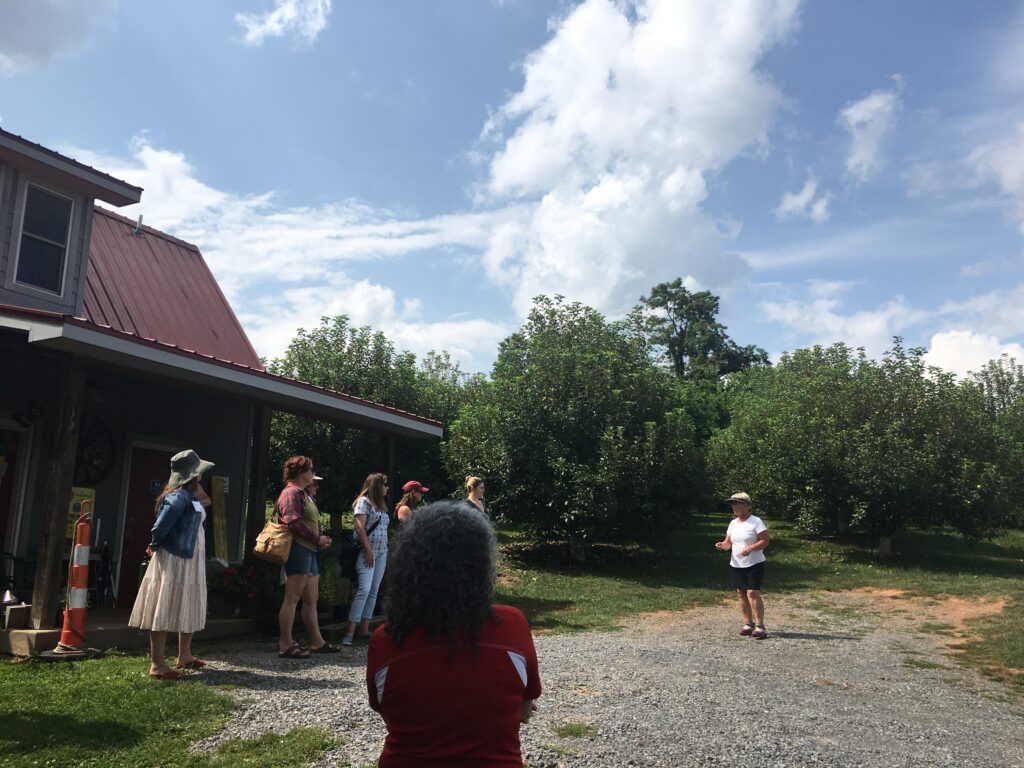The Power of Storytelling for Agritourism Farms & Destinations
go.ncsu.edu/readext?814478
en Español / em Português
El inglés es el idioma de control de esta página. En la medida en que haya algún conflicto entre la traducción al inglés y la traducción, el inglés prevalece.
Al hacer clic en el enlace de traducción se activa un servicio de traducción gratuito para convertir la página al español. Al igual que con cualquier traducción por Internet, la conversión no es sensible al contexto y puede que no traduzca el texto en su significado original. NC State Extension no garantiza la exactitud del texto traducido. Por favor, tenga en cuenta que algunas aplicaciones y/o servicios pueden no funcionar como se espera cuando se traducen.
Português
Inglês é o idioma de controle desta página. Na medida que haja algum conflito entre o texto original em Inglês e a tradução, o Inglês prevalece.
Ao clicar no link de tradução, um serviço gratuito de tradução será ativado para converter a página para o Português. Como em qualquer tradução pela internet, a conversão não é sensivel ao contexto e pode não ocorrer a tradução para o significado orginal. O serviço de Extensão da Carolina do Norte (NC State Extension) não garante a exatidão do texto traduzido. Por favor, observe que algumas funções ou serviços podem não funcionar como esperado após a tradução.
English
English is the controlling language of this page. To the extent there is any conflict between the English text and the translation, English controls.
Clicking on the translation link activates a free translation service to convert the page to Spanish. As with any Internet translation, the conversion is not context-sensitive and may not translate the text to its original meaning. NC State Extension does not guarantee the accuracy of the translated text. Please note that some applications and/or services may not function as expected when translated.
Collapse ▲Earlier this week, a workshop on storytelling was held as part of the EmPOWERing Mountain Food Systems (EMFS) program engaging agritourism farmers and destination leaders. EMFS is a three-year project funded by the Appalachian Regional Commission focused on seven counties of Western NC (Jackson, Macon, Haywood, Swain, Cherokee, Clay, Graham) through a partnership between the Center for Environmental Farming Systems and the Eastern Band of Cherokee Indians Cooperative Extension. The project’s overall goals are to expand opportunities and capacity to food and farm businesses across the southwestern NC region through several priority areas.
The workshop was developed from an agritourism-focused research initiative on the project led by NC State Department of Parks, Recreation and Tourism Management faculty Dr. Whitney Knollenberg and Dr. Carla Barbieri, Tourism Extension Specialist. Through interviews and focus groups with tourism destination and community leaders as well as farmers and agritourism providers, an apparent opportunity to connect the storytelling that is engrained in agritourism operations as a means to grow customer bases for both agritourism operations and destinations in the area. This workshop brought together agritourism farmers with community and tourism professionals with the end goal of utilizing each’s unique tools to work toward shared goals of growing visitation to their areas.
The morning kicked off with concurrent sessions with agritourism farmers refining their own unique story that exemplifies elements of their farm. Simultaneously, destination and community leaders identified their goals and opportunities for the stories of these agritourism farms to support them in achieving these goals. In these concurrent sessions, representatives from the Appalachian Sustainable Agriculture Project presented their resources for farmers and communities, including their fantastic storytelling worksheet and guide.
After lunch, everyone came together by region to discuss the farmers’ stories, the destination, and community leaders’ goals and define actionable next steps to support each other beyond the workshop. Upon deciding each attendee’s next task, everyone traveled to KT’s Orchard & Apiary to see the on-farm storytelling in action. It is safe to say that attendees left inspired by this final speaker and energized by their new contacts and expanded network made at the workshop.
Tentatively in December, there will be another similar workshop in another part of the SW region of the state to reach additional agritourism farmers and destination and community leaders. Visit the EMFS website to learn more about the entire project and the upcoming workshops. The workshop team included EMFS, Center for Environmental Farming Systems, Appalachian Sustainable Agriculture Project, Tourism Extension Associate, Ann Savage, and Dr. Whitney Knollenberg, and Dr. Carla Barbieri, Tourism Extension Specialist.





